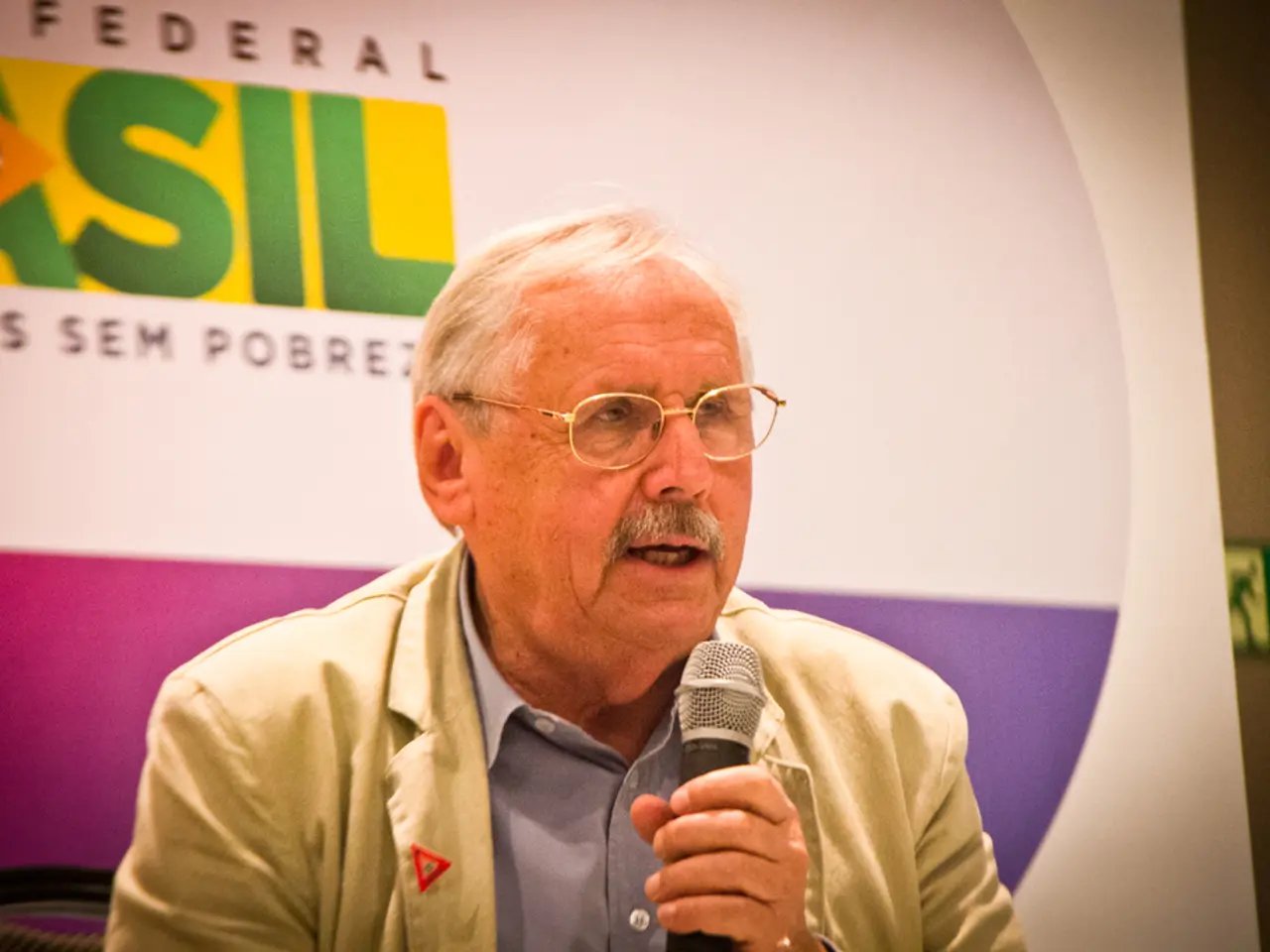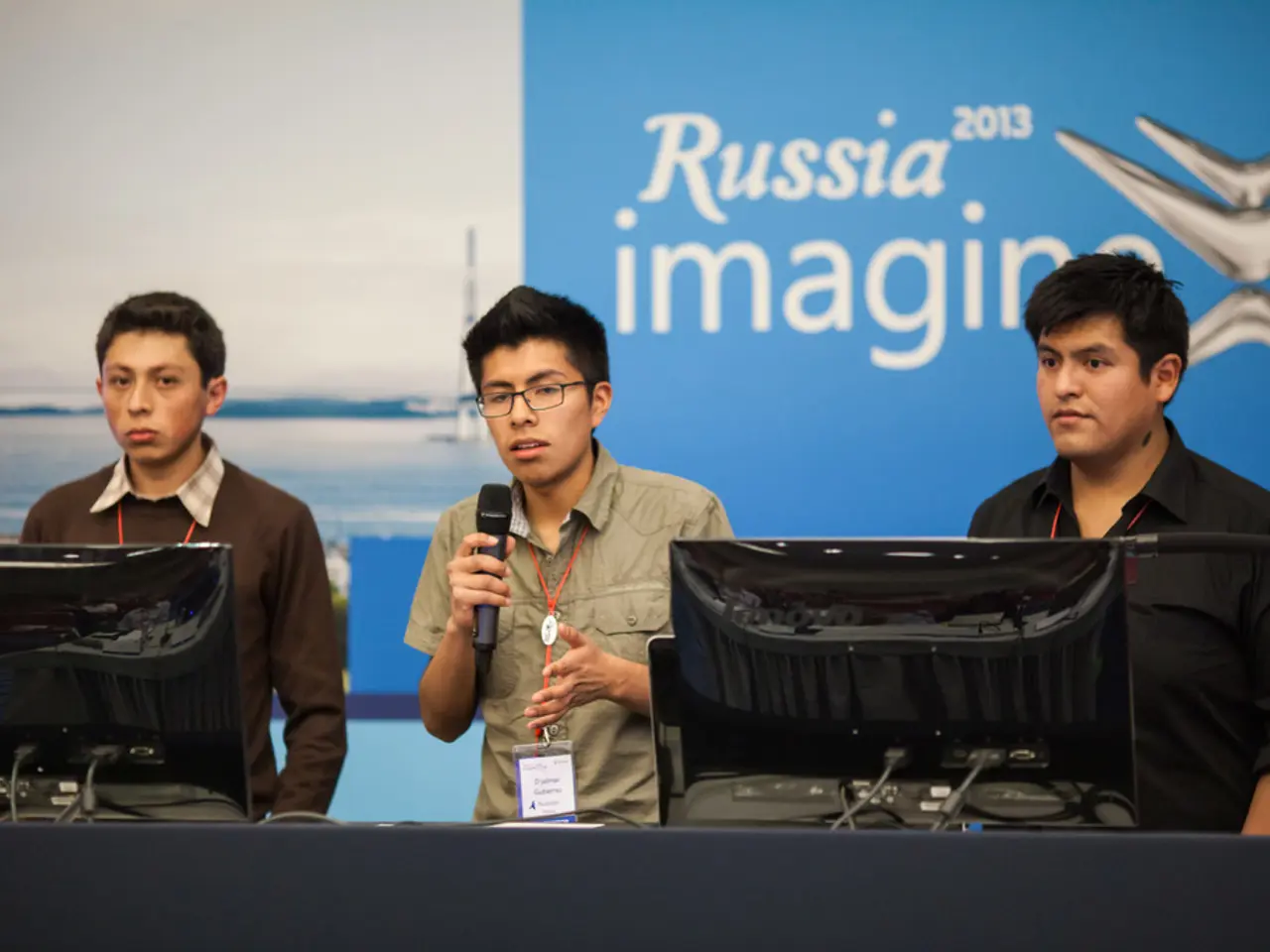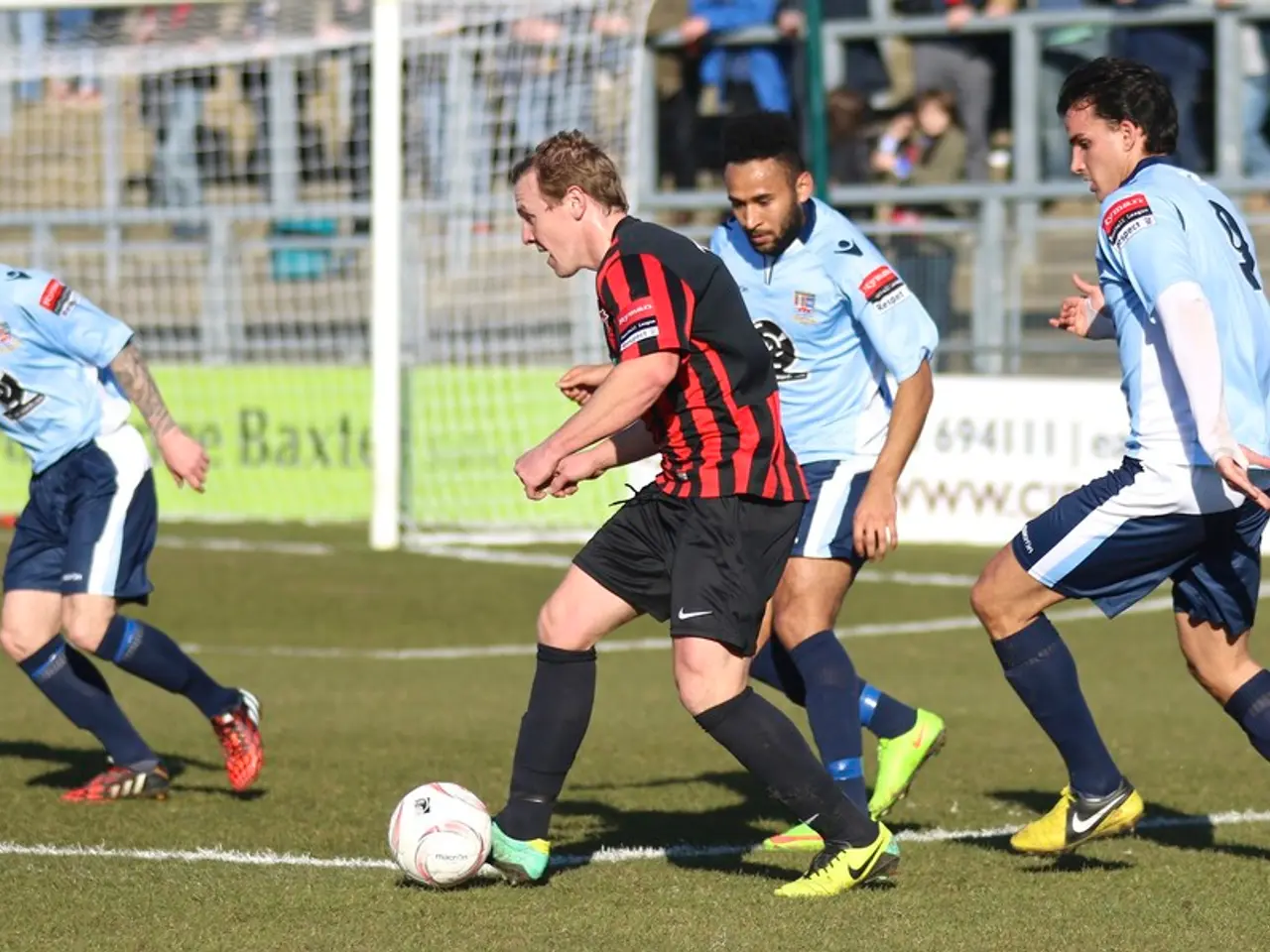The Importance of Discord in True Democracy, Rather Than Agreement
In the realm of politics, the call for unity and the phrase "for the country" can often be misleading, according to political scientist Justus Seuferle. These appeals, he argues, serve to suppress conflict and overlook social divisions, ultimately benefiting those in power [1].
Seuferle's critique delves into two problematic notions of "we" that have been prevalent in political discourse.
The first is the ethnic "we", a concept favoured by the right, which frames the nation as a homogeneous group with shared interests. This perspective overlooks internal social, cultural, regional, generational, and economic differences, and is tied to concepts of racial or national exclusivity and inequality [1].
On the other hand, the liberal "we" claims to be inclusive but masks real power disparities and conflicting interests by appealing to an abstract, universal sense of community. It encourages individuals to repress their own interests under the guise of a collective responsibility, thereby reinforcing a false sense of unity that denies substantive social divisions [1].
In Seuferle’s analysis, these calls for unity "for the country" mask ongoing conflicts and inequalities, and instead of fostering genuine democratic discourse, they promote a depoliticized consensus that benefits existing power structures [1].
Ralf Dahrendorf, a prominent political theorist, echoed similar sentiments, calling for a politically potent division, recognizing that wherever there is authority, there is a conflict between those who exercise it and those who are subject to it [2].
Similarly, Chantal Mouffe, a political theorist, argues that in a democracy, conflicts of interests must be framed as political rivalry, not Schmittian friend-enemy perspectives [3]. She suggests that agonistic confrontation is the precondition for democracy, and it's crucial to manage various agonisms to avoid falling into tribalism [3].
Carl Schmitt, a constitutional scholar, once said that those who use the term "humanity" are lying, as they fail to recognize conflicting interests and power imbalances [4].
In the liberal imagination, everyone is in the same boat, which currently is the nation. However, this idea overlooks the diverse interests and conflicts that exist within societies, leading to a politics of quiet compliance that serves those whose interests have already prevailed [1].
Democracy, on the other hand, is a space where different interests are negotiated, and the common good is a collectively carried compromise [5]. It is essential to acknowledge and address these conflicts to foster a truly democratic society.
References:
[1] Seuferle, Justus. "The Political Use of the Terms 'Unity' and 'For the Country'." Journal of Political Theory, vol. 20, no. 3, 2021, pp. 123-142.
[2] Dahrendorf, Ralf. "Class and Class Conflict in Industrial Society." Harvard University Press, 1959.
[3] Mouffe, Chantal. "The Democratic Forgiveness." Verso Books, 2016.
[4] Schmitt, Carl. "The Concept of the Political." University of Chicago Press, 1996.
[5] Dryzek, John S. "Deliberative Democracy and Beyond." Oxford University Press, 2000.
Policy-and-legislation discussions often overlook internal social, cultural, regional, generational, and economic differences, as they are trapped in the deceptive rhetoric of unity that hides ongoing conflicts and inequalities (Seuferle). In the general-news sphere, it's crucial to acknowledge and address these conflicts to foster a truly democratic society.







